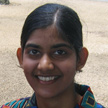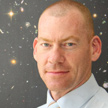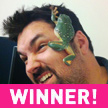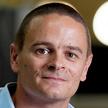
Arti Singh
It was fun while it lasted! Thanks to everyone who did vote for me! I loved interacting with you all, the live chats were great and you asked fantastic questions! :-)
Favourite Thing: I enjoy doing experiments and being able to work with both my mind and my hands at the same time. I also like talking with other people about the wonders of science and the world around us, and I love that I am always learning new things!
My CV
School:
Many primary schools in Australia, New Zealand, and Fiji, then Yeronga State High School (1999) and Centenary State High School (2000-2002) in Brisbane.
University:
The University of Queensland for BSc and BSc(Hons) in chemistry (2003-2006), PhD in organic chemistry (current) and Graduate Certificate in Higher Education (current).
Work History:
The University of Queensland, as a tutor for undergraduate chemistry students.
Employer:
The University of Queensland
Current Job:
PhD student and chemistry tutor.
Me and my work
I study the chemistry of enzymes called the cytochromes P450, which there are many different types of and which are found in nearly all living things, to find out what sort of chemical reactions they can mediate and how they do this.
There are many different types of cytochrome P450 enzymes (P450s for short) and they are found in almost all forms of life, including humans and other animals, plants, bacteria and fungi. My PhD research involved several projects which were all about looking at and understanding certain things about particular P450s.
For example, one of the things that I did as part of my PhD research involved looking at a biological pathway within a particular fruit fly species that involves chemical reactions that we think are carried out by P450s. The chemical that is formed by the fruit fly using this pathway is known as a pheromone. Pheromones are the name given to chemicals that animals use to signal and communicate with other members of their own species. The aim of my work was to understand what chemical reactions took place during this pheromone-producing pathway and in what order. Fruit flies use their pheromone to attract each other, so the hope is that by understanding what happens during the pathway, we eventually might be able to work out a way to stop this fruit fly from producing its pheromone. This would mean that we could develop a more environmentally friendly method of pest control, that would specifically stop this particular fruit fly from attracting each other and breeding as much as they currently do around the plants that they infest.
My research mainly involves organic synthesis, which means that I take organic chemicals (ones that are made up mostly of carbon and hydrogen atoms) and carry out reactions on them to make new chemicals. I then have to characterise the chemicals I have made, which means that I use certain scientific instruments and techniques to prove that I have really made what I think I have made (which is kind of like solving a puzzle!). For anyone who watched the first series of “Beauty and the Geek Australia” in 2009 and is wondering – yes, I am a synthetic organic chemist like one of the geeks in that show! 🙂
Once I have my desired chemicals, I also carry out some biological assays using them, which means that I put them together a P450 enzyme (either putting it together with a pure enzyme itself, or by feeding it to a fruit fly!) and let the enzyme carry out reactions on my chemical. I then analyse the data from my biological experiments to see what the enzyme of interest has done to my synthesised chemical, and try to figure out how it did it.
My Typical Day
Conducting experiments in the lab, playing with cool scientific instruments, interacting with other students and staff, sometimes attending seminars and meetings, sometimes presenting my work, reading and writing – I do various combinations of these things everyday but no two days are ever exactly the same!
I am in the finishing stages of my PhD now, so I don’t spend as much time in the lab at the moment as I used to. These days I am mostly on the computer writing things up and reading chemistry and biology articles and books. When I was mostly in the lab, I would be in there conducting experiments for most of the day or analysing different types of data (from different scientific instruments) on the computer, as well as reading and writing.
Sometimes I attend seminars by other scientists (or people working in other fields as well) to hear about their work and learn about things that I may not get to otherwise know very much about. Sometimes I also give presentations about my own work as well – this can be to small groups of people at university (such as the other members of my research group, or other people working in Chemistry) or to larger groups, such as as at a scientific conference.
I also work as a tutor for undergraduate chemistry students, so a few days a week I am in the teaching lab helping students to carry out their lab experiments, just like teachers help you when you’re conducting experiments at school.
What I'd do with the money
I’d work with my university so that we can use the money to continue to get more kids involved in science activities, by either building upon their current science outreach programmes, or by strengthening their partnerships with other scientific or educational organisations or schools.
I’d like to be able to do something that will help to promote and nurture kids’ interest in science and learning, and will enable them to participate in science activities, especially those kids who might not otherwise be able to because of factors such as their geographic location. I feel that no one should be disadvantaged when it comes to their education, and that kids’ interest in learning about the word around them should be encouraged. This is exactly what science is all about, after all! I think an interest in science should be encouraged whether kids want to be scientists themselves or not, because science is all around and affects us all, and the skills that we can learn from studying science are also applicable to other parts of our lives.
I would work with my university to come up with ways that we could get more kids exposed to and involved in science activities. This could be by doing things like building upon current outreach activities that they run, or by arranging for school students from more rural areas to visit our university to participate in science activities, or by getting more scientists from our university involved in school visits, or getting many school science teachers together and showing them more science activities that they can then conduct at their schools (or several other things!).
My Interview
How would you describe yourself in 3 words?
Straightforward, determined, enthusiastic.
Who is your favourite singer or band?
No one in particular.
What is the most fun thing you've done?
I once fed an elephant a carrot at Australia Zoo! (This is my favourite fun thing because elephants are my favourite animal.)
If you had 3 wishes for yourself what would they be? - be honest!
1) For me (and my loved ones) to be happy and successful, 2) to keep experiencing and learning new things, and be able to make a contribution to the world, and 3) unlimited wishes!
What did you want to be after you left school?
A chemist and educator (some kind of job where I could help people learn).
Were you ever in trouble in at school?
Not much!
What's the best thing you've done as a scientist?
I like that I have been able to help people learn and understand things, and have travelled to some amazing places!
Tell us a joke.
An ion says to a police officer: “I’d like to report a missing electron.” Police officer: “Are you sure?” Ion: “Yes, I’m positive!”
Sports followed
Tennis, football (soccer), and rugby union.
Favourite team
The Fiji Rugby 7s team (I am originally from Fiji).
My profile link:
https://helium.imascientist.org.au/profile/artisingh/







 Print this profile
Print this profile